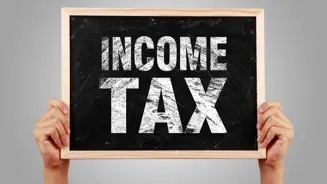What is the story about?
The Income Tax Department has extended the deadline for filing Income Tax Returns (ITR) for the financial year 2024-25 from July 31, 2025, to September
15, 2025. This decision provides taxpayers with an additional 45 days to prepare and submit their returns without incurring a late fee. The Central Board of Direct Taxes (CBDT) made this announcement in light of significant updates to the ITR forms and the necessary preparations for the filing systems for Assessment Year 2025-26.
New Tax Regime Now Default for FY 2024-25
For FY 2024-25, the new tax regime is the default for all taxpayers. Salaried individuals can still opt for the old regime while filing their return, but if you miss the due date and file a belated ITR, you’ll be locked into the new regime.Under the new structure, income up to Rs 3 lakh is tax-free. Tax rates rise progressively, reaching 30% for income above Rs 15 lakh. Salaried employees and pensioners get a standard deduction of Rs 75,000, while those with taxable income up to Rs 7 lakh can claim a rebate of up to Rs 25,000 under Section 87A, eliminating their tax liability.
Employer contributions to the National Pension System (NPS) can also fetch a deduction of up to 14% of your basic salary.
A key point to note: the recent government announcement of “no tax on incomes up to Rs 12 lakh” applies only from FY 2025-26. It does not apply to the ITR you are filing this year.


















